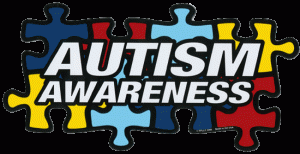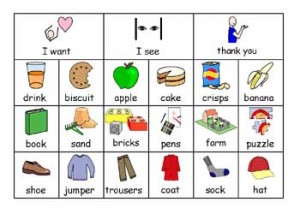An Interview with Gina Badalaty – Special Needs Mom
This week, we’re featuring Gina Badalaty of Mom-Blog. Gina has been blogging about special needs since 2002. Her focus is on raising awareness and helping other parents of special needs kids. Gina herself has two special needs children: Amelia has a rare form of Down syndrome and Zoe has autism spectrum disorder (ASD). In our interview, Gina discusses the many speech therapy techniques she has used with both of her daughters – the ones that worked and the ones that didn’t. While not all speech therapy treatments helped Zoe and Amelia, it’s important to remember that every child is unique. Gina also pointed out that treatment techniques are always evolving. The number one lesson from Gina’s story is to keep trying until you find something that helps, and to never let your child’s disability get in the way of her happiness.
You’ve mentioned that you focus more on “ability” as opposed to “disability.” What advice would you give to other parents who are struggling to improve their child’s self-esteem?
Always, always praise the little accomplishments if it’s new. Once my kids do something more or less consistently, I like to tell my kids, “Oh you know that, you’ve mastered it.” I’ll encourage them to teach it to each other or me. I think it’s also important to tell them that you see them doing what they do, without judgment. (Their school does this – rather than praise, the idea that they visibly see our kids trying something builds self-esteem for them.)
Zoe, who has high-functioning autism, has difficulties with verbal communication. What techniques are you using to encourage verbalization?
We encourage her to use her words when asking for something, if we know what it is. We get a really great response with food. She’ll point to the pretzels and I’ll say, “What’s that?” We try to encourage her vocal abilities as much as possible, and reward her by letting her know she’s done a good job when she speaks.
Does Zoe use any AAC devices?
At school, the PECS system has worked wonderfully and given her a great deal of independence… unfortunately, she was not happy to see a PECS board at home, so we don’t use it too much, however, I am starting to go through her day with a board I was given. The teachers are not just working with her with boards to communicate needs, wants, and academics, we are also working together to show her feelings for the day: was it a good, bad, or so-so day?
Your other daughter, Amelia, has a rare form of Down syndrome. Does she also face communication challenges?
Yes, not as much as Zoe, but Amelia does have communication issues such as echolalia. She too uses boards for routines, feelings, and for changes in schedule. For example, when a teacher is out, she is told why with boards, ie, Miss Peck’s photo with an image of someone feeling sick. One strategy that has helped is that our kids’ school embraces Responsive Classroom techniques, and they have instituted Morning Meetings every day. This has really impacted Amelia and she is now developing the skill of conversation.
Is Zoe working with a speech therapist? Can you discuss some of the speech therapy techniques that you find useful?
Yes, Zoe is working with a speech therapist at school and has in the past had one outside of school. One that worked only briefly was use of the iPad, because Zoe stopped speaking when the iPad spoke for her! Now they use the boards, images, and tools such as toys. One very effective toy was a dollhouse, which not only worked in having her name items, family members, and rooms, but helped her learn how to play properly. (For many years, Zoe lined up toys instead of playing with them, as many children with ASD do.)
How has your life changed as the mom of two special needs kids?
Probably in too many ways to count! First of all, I learned not to “sweat the small stuff.” Piled up laundry does not compare to the needs of my kids -unless they need laundry, lol! If they are happy, healthy, and know they are loved, then we are blessed. When they make even small progress, I’m overjoyed. That said, I’ve been a much stronger person in general, more reliant on my faith, and passionate about causes for people with disabilities. We’ve also gotten into health and nutrition, and are trying to feed our kids solely whole foods, detox our home, and work on behavioral issues with food and supplements as well as behavioral approaches. We find that doing both has really progressed our kids, and they are more independent for it.

_________________________________________________________________________________________________
Thanks so much for sharing your story and your advice, Gina! Be sure to check out Gina’s website and the resources she lists there.




